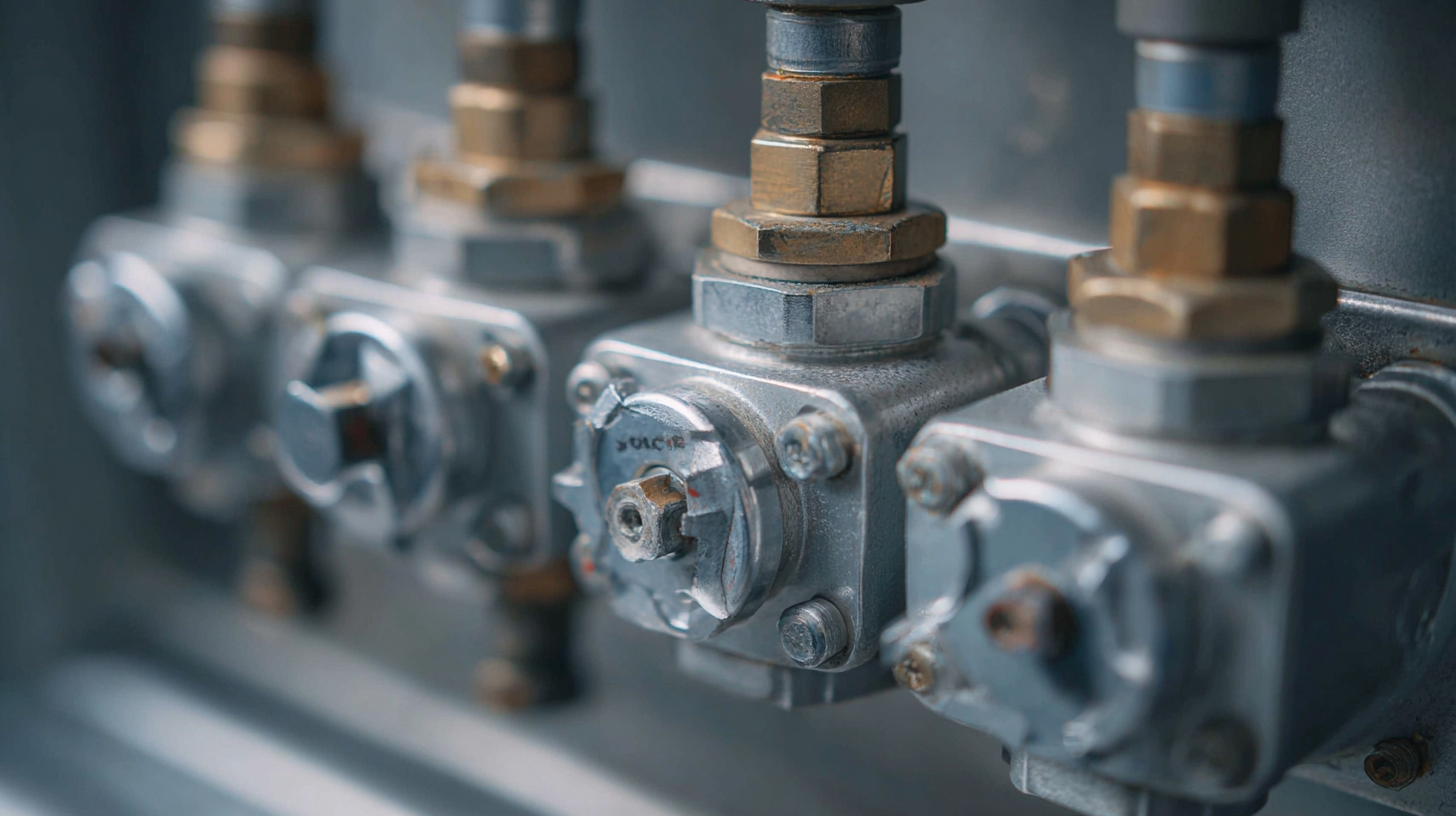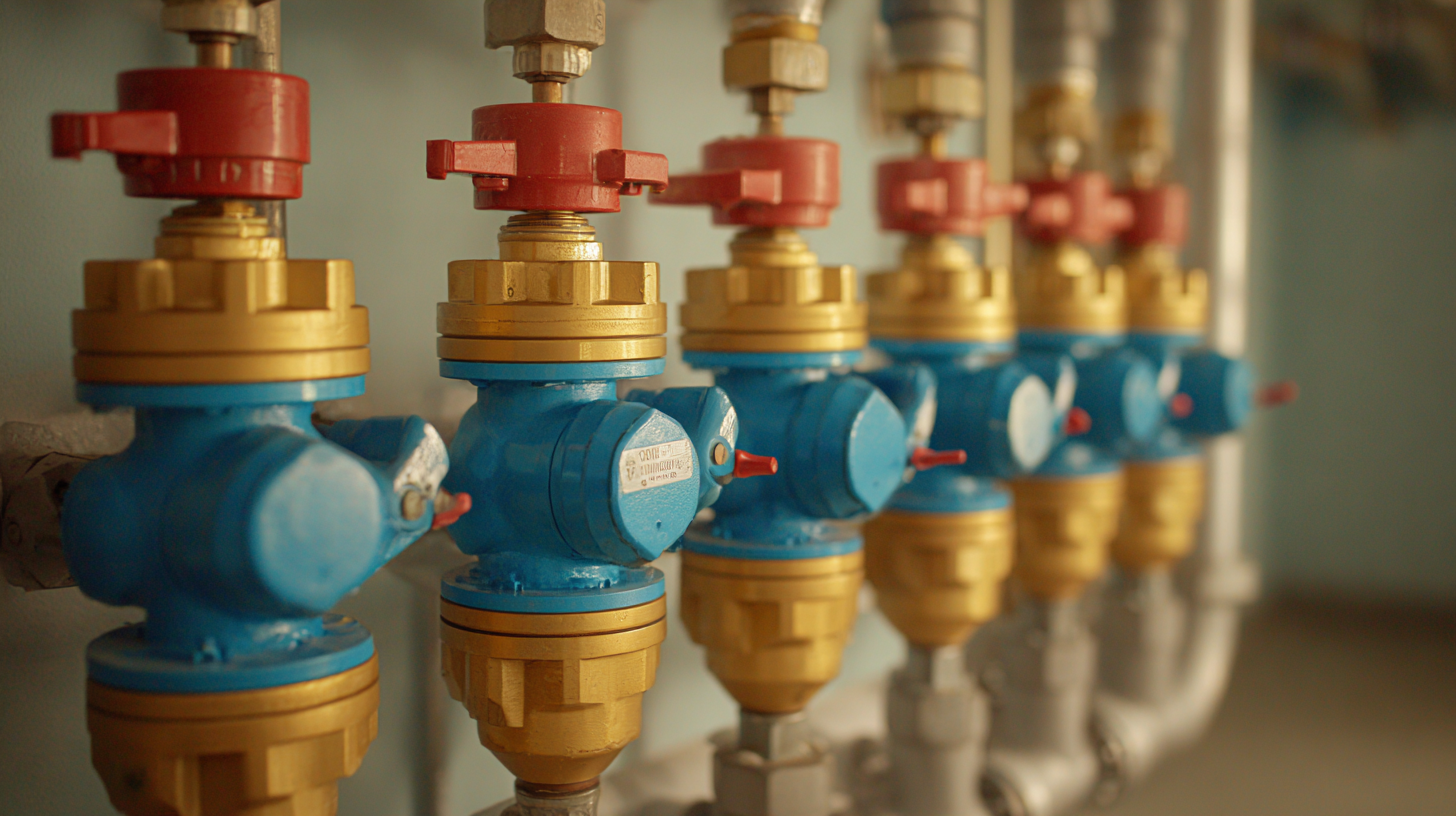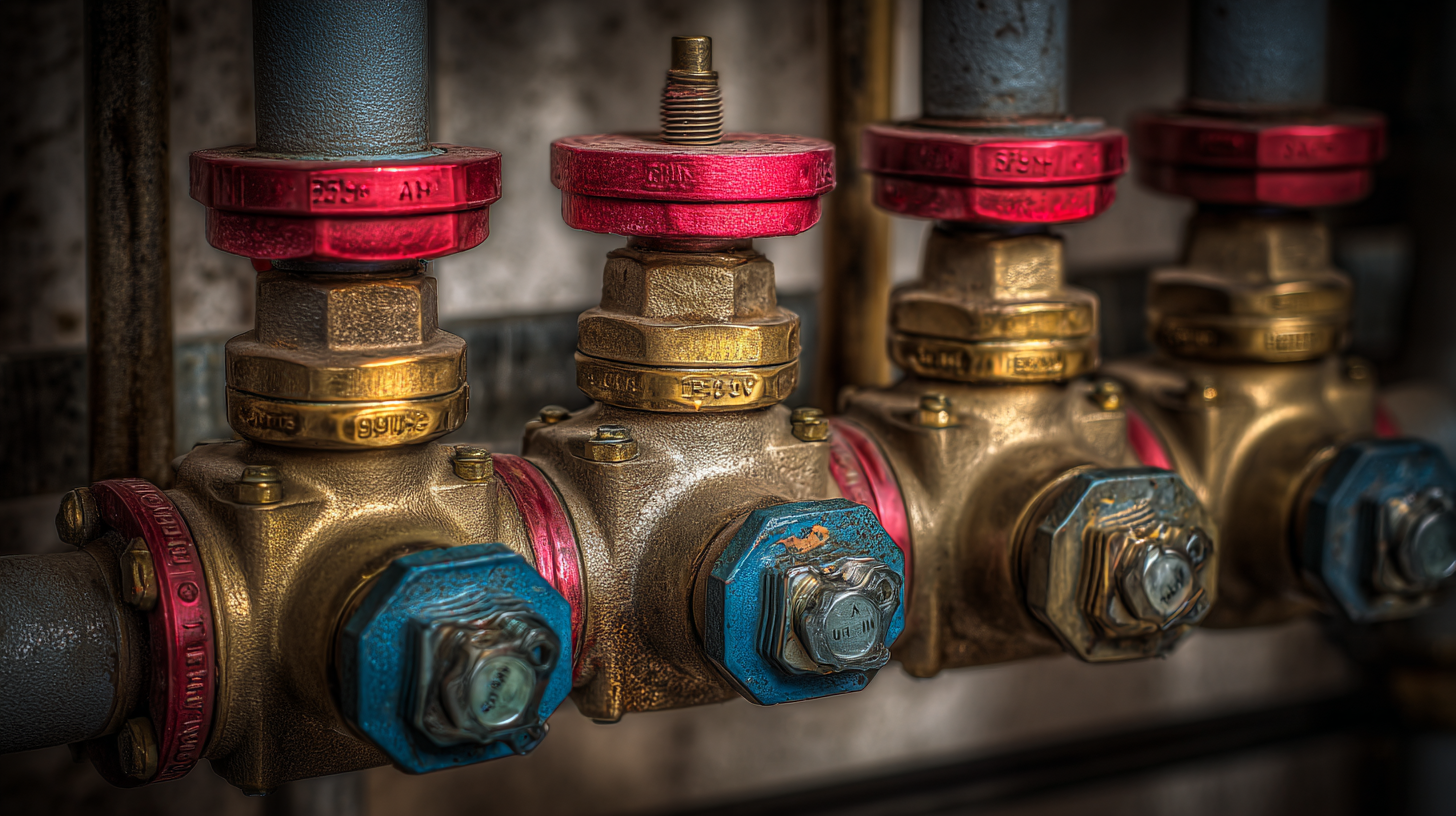Understanding the Importance of Gas Valves in Home Safety and Efficiency
Gas valves are critical components in maintaining both the safety and efficiency of gas-powered appliances in our homes. These valves serve as control mechanisms, regulating the flow of gas to ensure that appliances operate properly while preventing potential hazards, such as gas leaks or explosions.

Understanding the importance of gas valves is essential for homeowners, as their proper function directly impacts not only the efficient use of energy but also the overall safety of the household. Regular maintenance and timely replacement of worn or faulty valves can mitigate risks and enhance the performance of heating systems, water heaters, and stoves.
In this article, we will delve into the different types of gas valves, their roles in home safety, and practical tips for ensuring they remain in optimal condition. By prioritizing gas valve maintenance, homeowners can protect their families and enjoy the full benefits of their gas appliances.
The Essential Role of Gas Valves in Ensuring Home Safety
Gas valves play a crucial role in ensuring home safety, serving as the first line of defense against potential gas leaks and related hazards. Recent industry reports indicate that improperly installed or malfunctioning gas valves are responsible for nearly 20% of residential gas incidents, emphasizing the need for regular maintenance and professional installation. By controlling the flow of gas to appliances, these valves minimize the risk of leaks, which can lead to dangerous explosions or health risks associated with inhaling natural gas.
In addition to enhancing safety, gas valves contribute to overall home efficiency. A study by the American Gas Association revealed that well-maintained gas systems, including valves, can improve appliance performance by up to 30%. Homeowners benefit from reduced energy costs and increased reliability when gas valves operate optimally. Regular inspections and timely replacement of faulty valves not only safeguard families but also ensure that gas appliances function efficiently, providing a safer and more comfortable living environment.
Understanding the Importance of Gas Valves in Home Safety and Efficiency
This chart illustrates the significant impact factors related to gas valves, including safety incidents, efficiency issues, repair costs, and maintenance frequency. Understanding these factors is crucial for ensuring home safety and operational efficiency.
Key Features to Look for in Quality Gas Valves
When it comes to home safety and efficiency, the choice of gas valves is critical. Quality gas valves not only ensure a reliable flow of gas but also play a significant role in preventing leaks, which can lead to hazardous situations. According to a report by the American Gas Association, improper valve operation contributes to roughly 25% of gas-related incidents in residential settings. Therefore, selecting the right gas valve should be a priority for homeowners.
When purchasing gas valves, consider key features such as durability, compatibility with gas types, and ease of maintenance. Look for valves made from robust materials like brass or stainless steel that can withstand high pressures and corrosive environments. Additionally, ensure that the valve is compatible with the specific gas you use, whether it be natural gas or propane. A clear indication of quality is the presence of industry certifications, which guarantee that the valve meets safety and performance standards.
**Tip:** Regularly inspect your gas valves for signs of wear or damage. Even the highest quality valves can deteriorate over time, increasing the risk of leaks.
**Tip:** Consult with a professional when installing or replacing gas valves to ensure that they are properly fitted and functioning as intended. Proper installation is crucial for maximizing safety and efficiency.
How Gas Valves Contribute to Energy Efficiency in Homes
Gas valves play a crucial role in enhancing energy efficiency within the home. By regulating the flow of gas to appliances, these valves help ensure that gas is used optimally, which not only cuts down on waste but also reduces energy bills. According to the American Gas Association, proper maintenance of gas systems, including valves, can lead to energy savings of up to 30%. This is especially pertinent in households utilizing gas for heating, cooking, and water heating, where every bit of efficiency translates directly into cost savings.
To maximize energy efficiency, homeowners should regularly inspect their gas valves and ensure they are functioning correctly. It is advisable to engage a professional to carry out a thorough inspection every couple of years. Additionally, investing in high-quality valves with advanced features such as automatic shut-off can further enhance safety and efficiency. When replacing or installing new gas appliances, always ensure that compatible, energy-efficient valves are used to maintain optimal performance.
Tip: Consider installing smart gas valves that can be controlled remotely. This not only enhances convenience but also allows homeowners to monitor their gas consumption in real-time, leading to better energy management. Regularly reviewing and adjusting your gas usage habits based on these insights can help optimize efficiency and safety in your home.

Common Risks Associated with Malfunctioning Gas Valves
Gas valves play a crucial role in maintaining safety and efficiency in our homes. However, malfunctioning gas valves can lead to serious risks, including gas leaks, which pose immediate dangers such as explosions or poisoning. Improper functioning can also cause appliances to operate inefficiently, leading to higher energy bills and increased emissions. Therefore, understanding the common risks associated with these valves is essential for every homeowner.
One of the critical tips for mitigating the risks of malfunctioning gas valves is to conduct regular inspections. Homeowners should check for any signs of wear, corrosion, or leaks. Using a simple soap solution can help identify leaks; if bubbles form, it indicates a problem that needs urgent attention. Additionally, ensuring that gas appliances are properly installed and maintained by qualified professionals can prevent many hazards.
Another important measure is to install gas detectors. These devices can alert homeowners to the presence of gas in the air, allowing for timely evacuation and response. Educating your family about the signs of gas leaks and the proper procedures to follow in case of an emergency can significantly enhance home safety.
Maintenance Practices for Maximizing Gas Valve Lifespan
Gas valves play a critical role in ensuring both safety and efficiency in home environments. Regular maintenance practices are essential for maximizing the lifespan of these valves, much like how engineers must address valve body failures in various mechanical systems. For homeowners, a proactive approach to maintenance can prevent costly repairs and dangerous situations. Implementing routine checks, lubricating moving parts, and ensuring that connections are tight and free of leaks can significantly enhance the reliability of gas valves.
Additionally, adopting innovative maintenance strategies, similar to those employed in the turbine and valve industries, can ensure that gas valves operate smoothly. Keeping abreast of the latest technologies and recommended practices can help homeowners maintain their gas valves effectively. Understanding signs of wear and taking swift action can mitigate potential issues, ensuring a safer living environment. Just as the West African Gas Pipeline Company emphasizes inspection and maintenance for their extensive infrastructure, homeowners should prioritize the upkeep of their gas systems to secure both functionality and safety.

